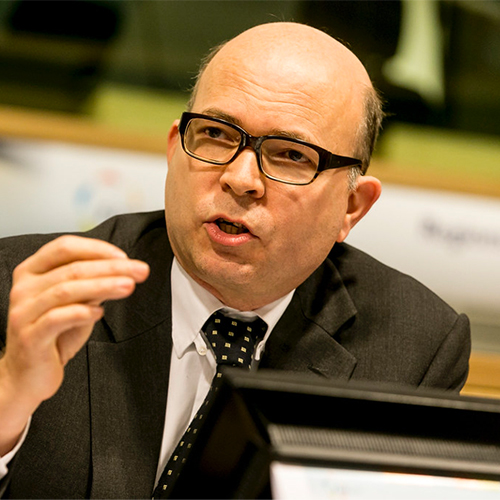
by Editor | Jul 1, 2022 | Global Enlightenment Leaders, Executive Board
Paul F. Nemitz is the Principal Advisor in the Directorate General for Justice and Consumer.
He was appointed by the European Commission on 12. April 2017, following a 6-year appointment as Director for Fundamental Rights and Citizen’s Rights in the same Directorate General.
As Director, Nemitz led the reform of Data Protection legislation in the EU, the negotiations of the EU – US Privacy Shield and the negotiations with major US Internet Companies of the EU Code of Conduct against incitement to violence and hate speech on the Internet.
Before joining the Directorate General for Justice and Consumers, Nemitz held posts in the Legal Service of the European Commission, the Cabinet of the Commissioner for Development Cooperation and in the Directorates General for Trade, Transport and Maritime Affairs.
Nemitz has represented the European Commission in numerous cases before the European Court of Justice and has published widely on EU law.
He is a visiting Professor of Law at the College of Europe in Bruges; Member of the Board of the Verein Gegen Vergessen – Für Demokratie e.V., Berlin; Trustee of the Leo Baeck Institute, New York; Member of the Board of the Association for Accountability and Internet Democracy, AAID, Paris; Member of the Scientific Council of the Foundation for European Progressive Studies, Brussels. He is also a member of the Tönissteiner Kreis e.V., Berlin, the Commission for Media and Internet policy of the SPD, Berlin; the German Association for European Law and the Arbeitskreis Europäische Integration, Heidelberg.
Nemitz studied Law at Hamburg University. He passed the state examinations for the judiciary and for a short time was a teaching assistant for Constitutional Law and the Law of the Sea at Hamburg University.
He obtained a Master of Comparative Law from George Washington University Law School in Washington, D.C., where he was a Fulbright grantee. He also passed the first and second cycle of the Strasbourg Faculty for Comparative Law.
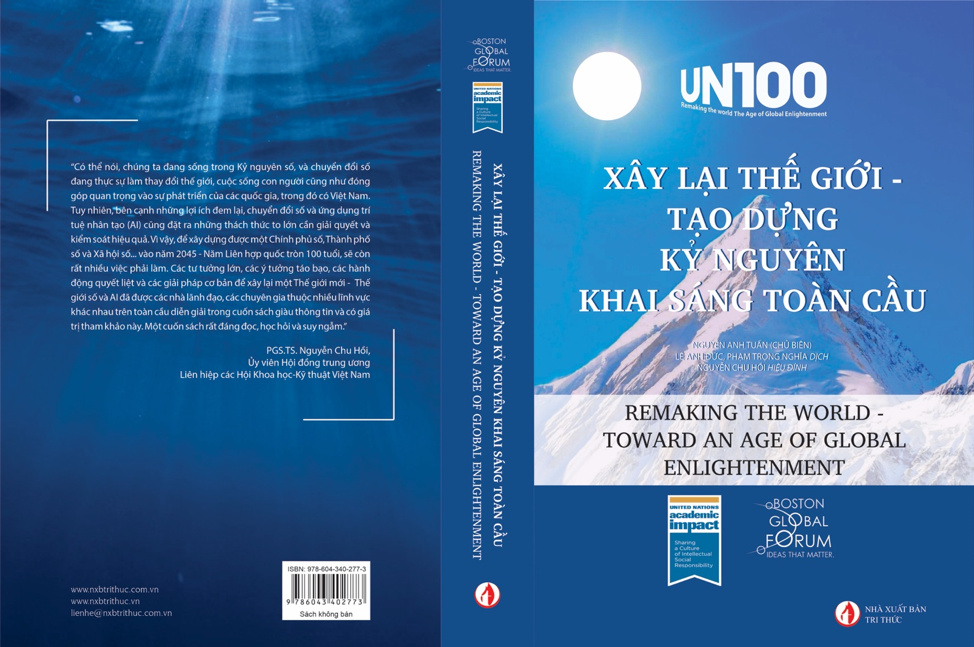
by Editor | Aug 1, 2022 | Global Alliance for Digital Governance, AIWS City, News, World Leaders in AIWS Award Updates, AIWS and the Age of Global Enlightenment
The Global Enlightenment Club, an organization of millionaires, billionaires, and business leaders will contribute to create cultural events for the Age of Global Enlightenment.
On special occasions, Boston Global Forum will collaborate with the Global Enlightenment Club to organize distinguished culture events to support principles and concepts of the Age of Global Enlightenment – the United Nations Centennial Initiative.
The Global Enlightenment Club is a part of AIWS City, a distinguished city that combines digital and real to practice concepts of the book Remaking the World – Toward an Age of Global Enlightenment, co-authored by world leaders such as Prime Minister Shinzo Abe, European Commission President Ursula von der Leyen, and Governor Michael Dukakis, and distinguished thinkers such as father of Internet Vint Cerf, father of soft power theory Joseph Nye, and professor Alex Pentland.
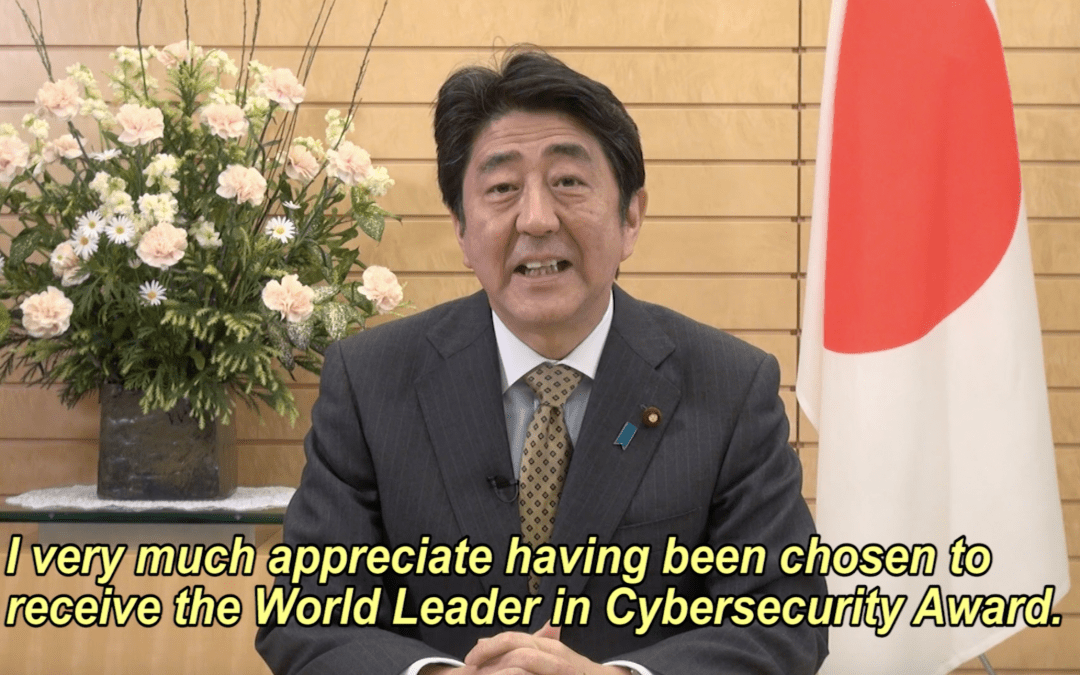
by Editor | Aug 1, 2022 | Shinzo Abe Initiative for Peace and Security, Practices in Cybersecurity
From August 9, 2022, the Shinzo Abe Initiative for Peace and Security will start High Level Dialogues for solutions for peace and security in the Age of Global Enlightenment.
Boston Global Forum leaders such as Governor Michael Dukakis, Chairman, Mr. Nguyen Anh Tuan, CEO, Harvard Professor Thomas Patterson, Board Member, MIT Professor Nazli Choucri, Board Member, and world leaders such as Former Israeli Prime Minister Ehud Barak, Former Japanese State Minister of Defense Yasuhide Nakayama, Former Latvian President Vaira Vike-Freiberga, Former Bosnia-Herzegovina Prime Minister Zlatko Lagumdzija, and Former World Bank Vice President Mats Karlsson will join and discuss.
We encourage people to send questions and ideas for this first Shinzo Abe Initiative discussion.
Please your email to [email protected]
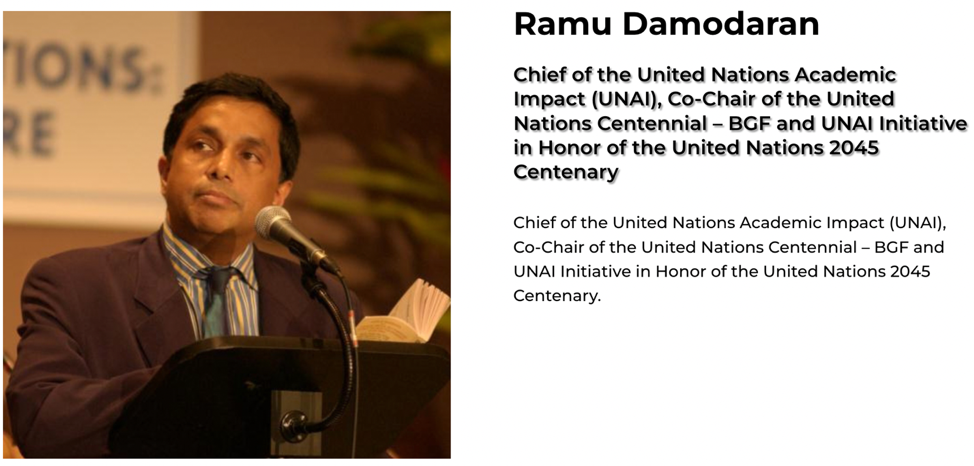
by Editor | Aug 1, 2022 | News
In our newsletter last week, Sarah Grand-Clément explored the role technology can play in ceasefire monitoring and verification. Today Kyrre Berland looks at its contribution to the art and practice of diplomacy itself, noting “while the United Nations seeks to democratize access to new technologies, and governments to address issues such as technology gaps, technology companies cannot absolve themselves of the ethical implications that lie in emerging technologies.”
https://medium.com/futuring-peace/what-ai-and-new-technologies-can-do-for-diplomacy-4066dec36138
AIWS.net includes news, reports, analysis and reflections by distinguished thinkers and innovators supporting innovations and solutions for “Remaking the World – Toward an Age of Global Enlightenment” and the United Nations Centennial initiative, looking at how the world might be in 2045 when the global organization completes a hundred year.
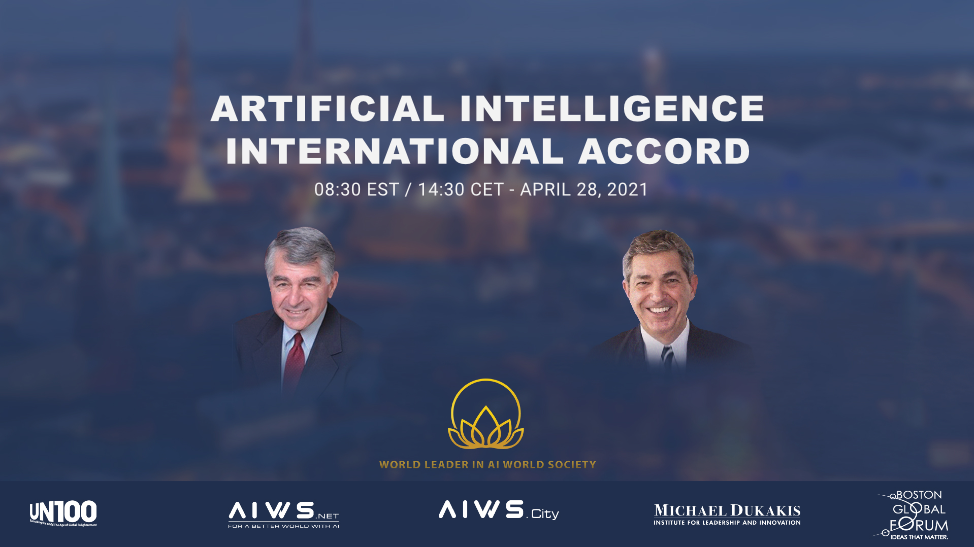
by Editor | Aug 1, 2022 | Global Alliance for Digital Governance, AI-Government, News
Globally, there has been a concession on transparency and the need for algorithmic audits.
Digital India Act
The IT Act 2000 oversees almost every facet of online activities. When the laws were first introduced, social media firms such as Facebook and Twitter did not exist. Technologies such as AI and ML were not as famous as today.
However, a lot has changed in the last 22 years. Fast-paced technological changes with the advent of AI and ML have made it critically important for the regulatory framework to be more specific and effective.
However, much progress has been made in this regard in different parts of the world. Most recently, the European Parliament recently voted in favour of the Digital Services Act (DSA). By doing so, the EU became the first jurisdiction in the world to set a comprehensive standard for regulating digital space. The new legislation could force these firms to share their algorithm with not just the regulators but with the users as well.
https://analyticsindiamag.com/indian-govts-new-it-laws-to-disrupt-social-media-platforms/
The Global Alliance for Digital Governance (GADG) was established through a collaboration of the Boston Global Forum and World Leadership Alliance-Club de Madrid at the Policy Lab on September 7-9, 2021.
GADG will:
- Coordinate resources: governments, international organizations, corporations, think tanks, civil society, and influencers for AI and a digital sphere for good, to make these resources more effective, to synthesize and maximize their impact, and to create more implementation-oriented conferences.
- Protect fundamental values and standards proposed in Social Contract for the AI Age, in AI International Accordand in the book Remaking the World – Toward an Age of Global Enlightenment.
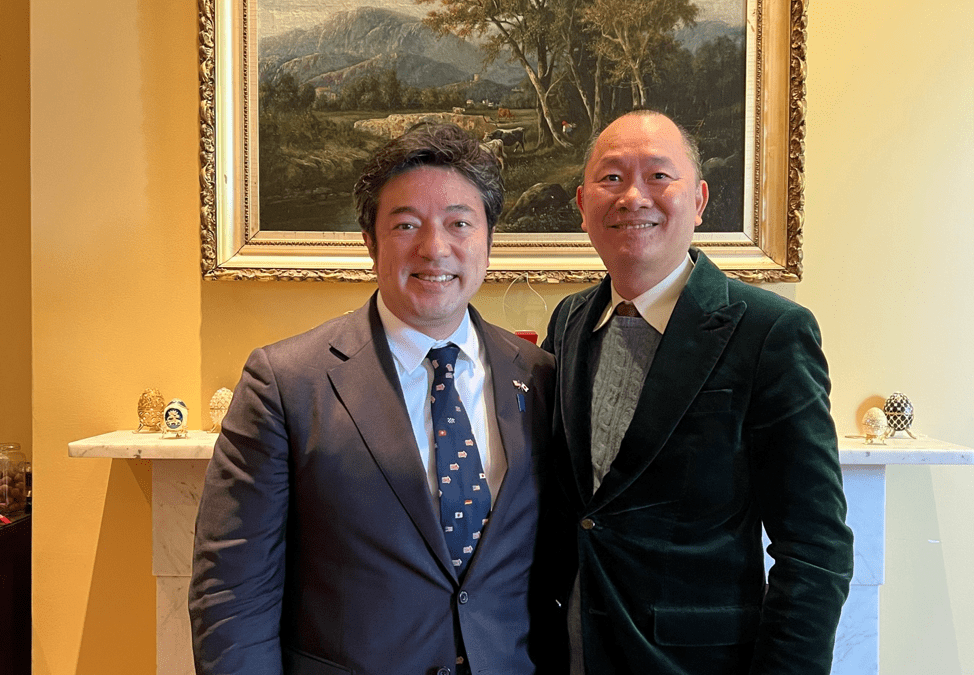
by Editor | Jul 25, 2022 | Shinzo Abe Initiative for Peace and Security
Following the Shinzo Abe Initiative for Peace and Security, many have contacted the Boston Global Forum to confirm their contributions to the Shinzo Abe Initiative. From August 8, 2022 (one month after his assassination), this Abe Hall will start to operate.
Former Japanese State Minister of Defense Yasuhide Nakayama has contributed to building the Shinzo Abe legacy at the Abe Hall.
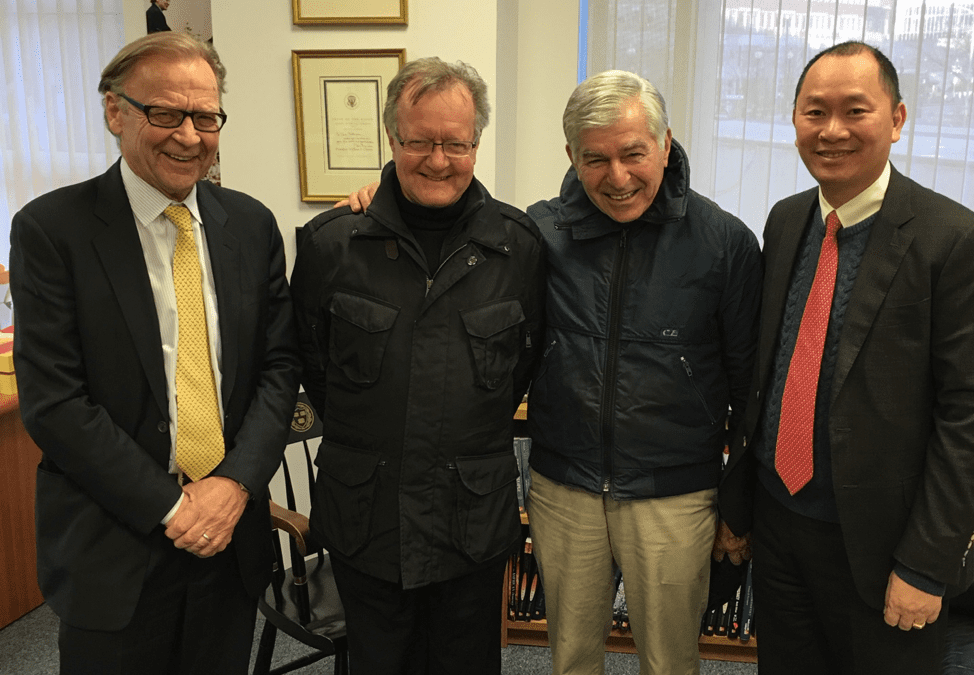
by Editor | Jul 25, 2022 | News
In this article, Sarah Grand-Clément , researcher in the Conventional Arms and Ammunition program and the Security and Technology program at the United Nations Institute for Disarmament Research (UNIDIR) looks at the role technology can play in ceasefire monitoring and verification , noting that “despite the existence of a range of technologies, it is nonetheless important to recognize that the human dimension cannot be removed from the use of technology — no matter the benefits technology might bring.”
https://medium.com/futuring-peace/what-role-technology-can-play-in-ceasefire-monitoring-and-verification-1ae160fdba6c
AIWS.net includes news reports, analysis and reflections by distinguished thinkers and innovators supporting innovations and solutions for “Remaking the World – Toward an Age of Global Enlightenment” and the United Nations Centennial initiative, looking at how the world might be in 2045 when the global organization completes a hundred years.
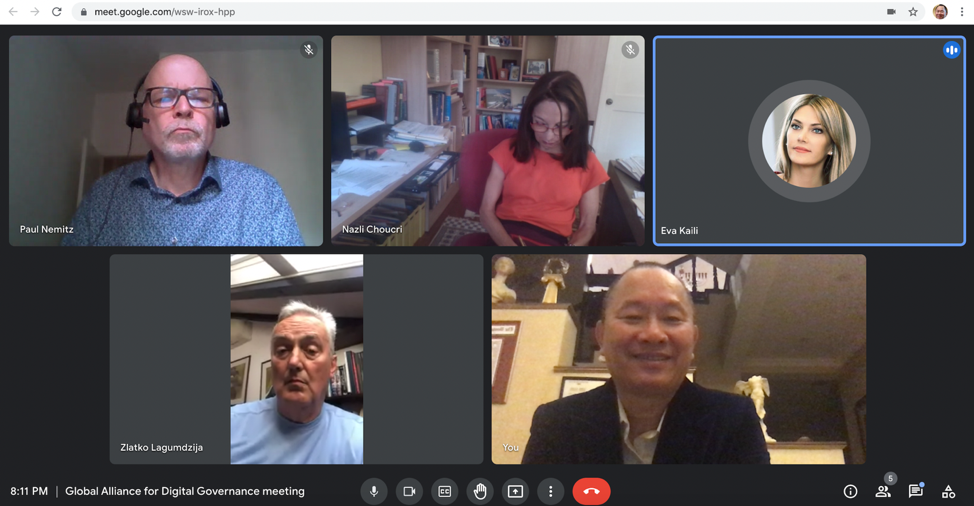
by Editor | Jul 25, 2022 | Global Alliance for Digital Governance, AI-Government
To improve the regulation of Artificial Intelligence, the UK government have put forth an AI rulebook to protect data and promote responsible AI use.
These proposals, pitched in the AI rulebook, look toward the future regulation of Artificial Intelligence, and take a less centralized approach than the EU.
Artificial Intelligence refers to machines which learn from data how to perform tasks normally performed by humans. For example, AI helps identify patterns in financial transactions that could indicate fraud and clinicians diagnose illnesses based on chest images – AI is now increasingly used in healthcare settings.
The government’s new plans for regulating the use of artificial intelligence (AI), as a Data Protection and Digital Information Bill introduced to Parliament, will help to develop consistent rules to promote innovation in this technology and protect the public.
https://www.openaccessgovernment.org/the-new-ai-rulebook-for-technology-innovation-in-the-uk-government/140016/
Boston Global Forum (BGF), Club de Madrid and AI World Society (AIWS) established the Global Alliance for Digital Governance (GADG) in September 2021. This is a part of the Social Contract for the AI Age, Framework for AI International Accord, and Remaking the World – Toward an Age of Global Enlightenment.
The Global Alliance for Digital Governance will take action to connect think tanks, influencers, experts, and citizens to contribute to building International Laws, International Accord on AI and Digital, while simultaneously working with governments and international organizations towards this goal.
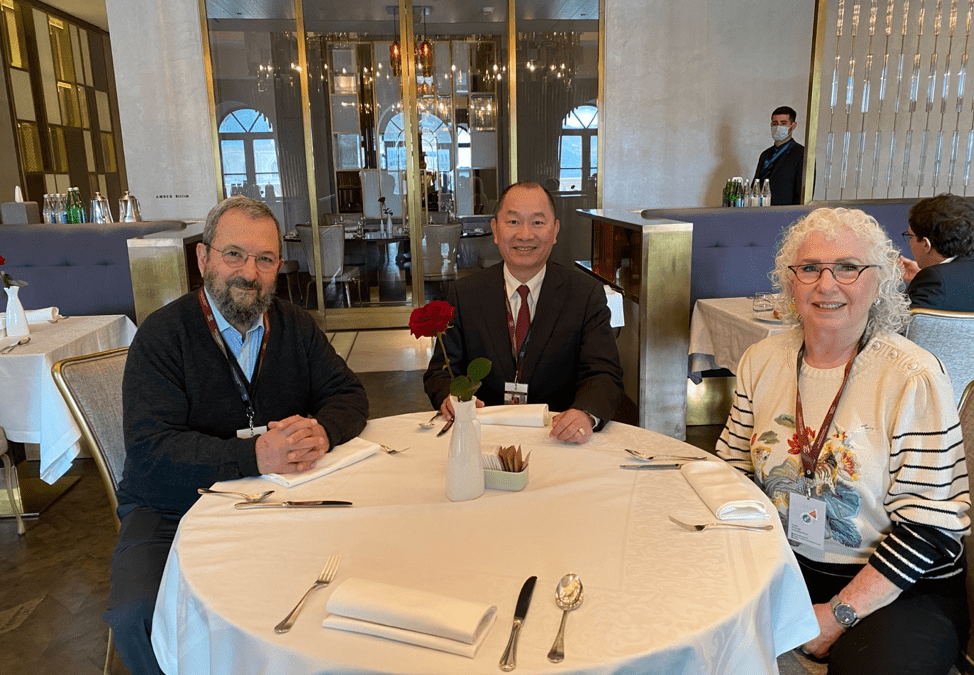
by Editor | Jul 25, 2022 | News
Leaders of the Vietnam Communist Party’s Central Theory Council will welcome and discuss with former PM Ehud Barak and his wife Nili Barak about the book Remaking the World – Toward an Age of Global Enlightenment in Hanoi.
This is a very special trip of PM Barak, with support and management from the Boston Global Forum. Leaders of Vietnam also would like to learn from him:
- Lessons and practices regarding strategic and theoretical thinking for developing countries like Vietnam
- Israel has the world’s largest percentage of engineers in the workforce and the highest percentage of university degrees and academic publications per capita. It also houses the most sophisticated creations developed through a combination of needs; breakthrough solutions in technology that are sustainable, unique, innovative, economical, sophisticated and safe. How has Israel recorded such achievements?
- Israel’s experience on national governance, social development management with the goal of rapid growth, sustainable development, innovation, ensuring security, safety, and security indicators and taking the community satisfaction indicator as a measure.








